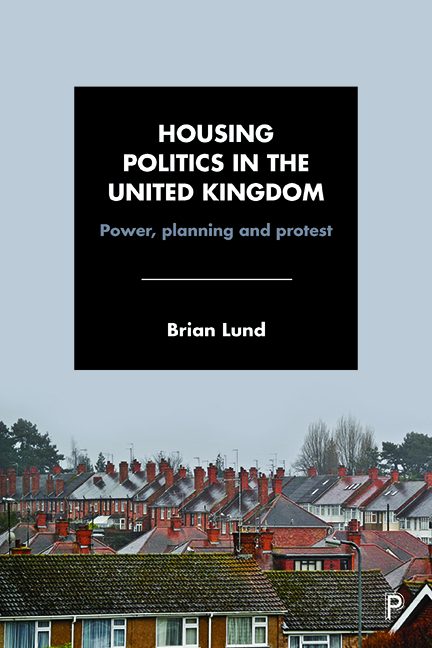Book contents
- Frontmatter
- Contents
- Acknowledgements
- Preface
- one Housing and politics
- two Land politics
- three Urban renewal: fencing the cities
- four Private landlords: ‘Rachmans’ or ‘residential property-owners’?
- five A property-owning democracy?
- six Eclipsing council housing
- seven Bending the ‘Third Arm’: politicians and housing associations
- eight Homelessness politics
- nine Devolution: where is the difference?
- ten Conclusion: power, planning and protest
- References
- Index
nine - Devolution: where is the difference?
Published online by Cambridge University Press: 05 April 2022
- Frontmatter
- Contents
- Acknowledgements
- Preface
- one Housing and politics
- two Land politics
- three Urban renewal: fencing the cities
- four Private landlords: ‘Rachmans’ or ‘residential property-owners’?
- five A property-owning democracy?
- six Eclipsing council housing
- seven Bending the ‘Third Arm’: politicians and housing associations
- eight Homelessness politics
- nine Devolution: where is the difference?
- ten Conclusion: power, planning and protest
- References
- Index
Summary
Before devolution in 1999, Scotland and Wales were constitutionally subject to the same housing regimes, but in Scotland, there were marked variations in housing outcomes when compared to England, the consequences of political struggles and ‘the ways in which legislation was applied [that] reflected the activities of a distinctive Scottish bureaucracy which was a product of the wider Scottish civil society’ (Murie, 2004, p 20). Northern Ireland had much more ‘de jure’ autonomy via Stormont, the Northern Ireland Parliament, until its suspension in 1972. Devolution released Scotland, Wales and Northern Ireland – when its Assembly was operational – from certain governance constraints imposed by Westminster. Each ‘home nation’ gained various degrees of legislative competence and discretion on how it spent its Westminster allocations on their devolved responsibilities, with the ‘Barnett formula’ determining Westminster ‘block grants’. Devised in 1977 to distribute resources to the ‘offices’ in Scotland, Wales and Northern Ireland, the Barnett formula's rationale remains obscure but it appears to have been conceived partly to negate pressure from the Secretaries of State for Scotland, Wales and Northern Ireland in the ‘horse-trading’ for extra spending. Historic spending patterns dominate the distribution, so the higher housing spending in Scotland and Northern Ireland in the late 1970s had an impact. Every extra pound spent or cut in England on a devolved service is reflected in the amount distributed to Scotland, Wales and Northern Ireland, allocated according to relative population size.
According to Treasury calculations, in 2014/15, identifiable expenditure per head was £8,638 in England, £10,374 in Scotland, £9,904 in Wales and £11,106 in Northern Ireland (Keep, 2015b), giving some post-devolution administrations more scope than others to provide good services. Expenditure on ‘Housing and Community Services’ is imprecisely identified as a category within overall spending per head. In 2012/13, £132 was spent in England, £307 in Scotland, £224 in Wales and £477 in Northern Ireland (HM Treasury, 2014b), although such figures mask variations in social housing provision that do not feature fully in Treasury accounting.
Scotland
The official Owners and Land and Heritages (Comptroller-General of Inland Revenue for Scotland, 1874), followed by John Bateman's landownership enumeration (Bateman, 1883), revealed that the 1,758 largest landowners owned 92.8% of Scotland, compared to their 56.1% share in England.
- Type
- Chapter
- Information
- Housing Politics in the United KingdomPower, Planning and Protest, pp. 233 - 262Publisher: Bristol University PressPrint publication year: 2016



